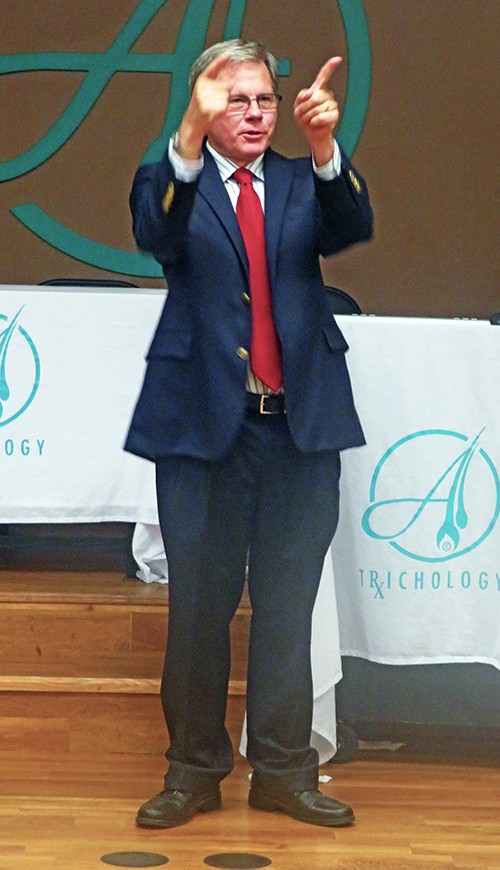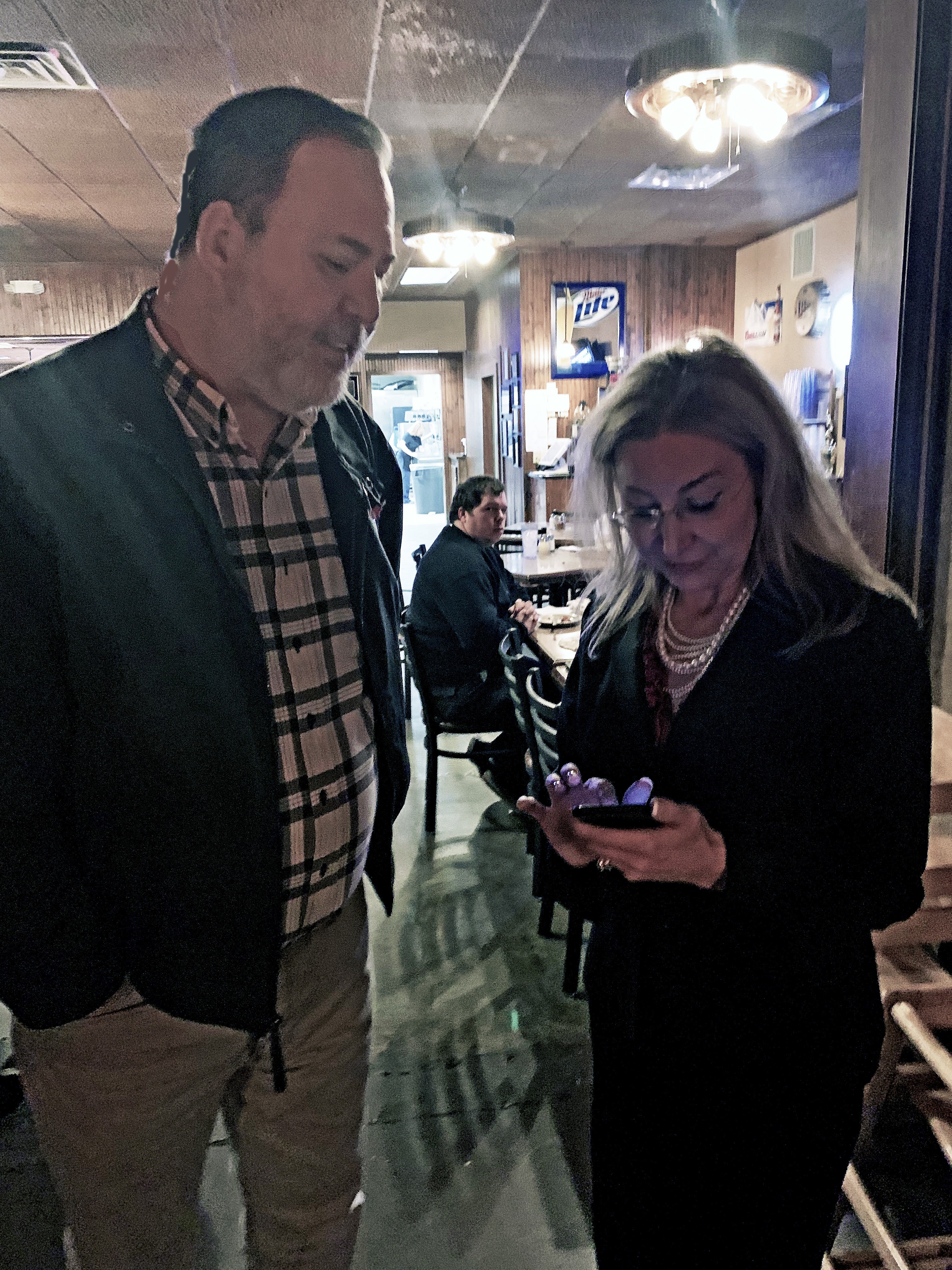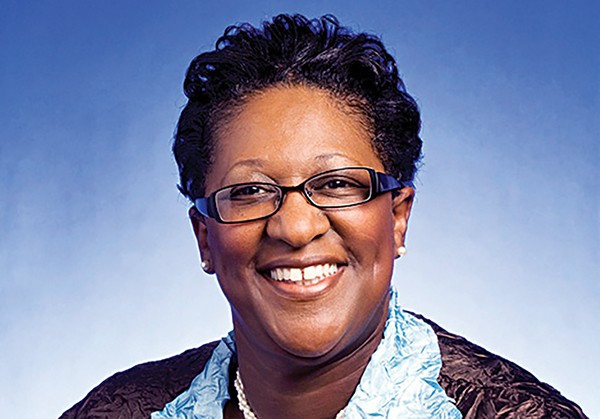Even if, as is currently being assumed by observers in both major political parties, Democrat Hillary Clinton should win the presidency over Republican nominee Donald Trump, and win in a landslide, how might that affect down-ballot races in Tennessee, where the GOP, almost everywhere, remains in the ascendant?
One test case might be the race in District 96 of the state House of Representatives between incumbent Republican Steve McManus and Democratic challenger Dwayne Thompson. The district, a suburban one incorporating parts of Cordova and Germantown, is considered safely Republican by most observers.
Thompson, a self-described “human resources professional,” disputes that, citing what he says are significant turnouts for Democrats in past statewide and presidential races in the district, as well as a mix of upscale, middle-class, and working-class populations that he thinks is ready for change.
Among other things, Thompson hopes for a backlash against legislative Republicans for their opposition to Governor Bill Haslam‘s Insure Tennessee proposal for Medicaid expansion. At a recent forum sponsored by the Tennessee Nurses Association, Thompson accused opponent McManus, an investment counselor and chairman of the House Insurance and Banking Committee, of having “bottled up” consideration of Insure Tennessee in the special legislative session of 2015.
McManus’ committee, which did hold an abbreviated hearing on Insure Tennessee in which McManus’ skeptical views on the proposal were obvious, did not administer the proposal’s coup de gras, however; that came from the Senate Health Committee, which had been specially expanded for the purpose by GOP Speaker Ron Ramsey.
McManus subsequently was named by Republican House Speaker Beth Harwell to a special task force on health-care which met several times this year and emerged with a scaled-down health insurance proposal, called the “3-Star Health Insurance Pilot,” that would expand TennCare for uninsured veterans and mental health patients as a prelude to possible general expansion in the future.
Thompson dismisses that plan as too little, too late, and says he will, if elected, continue to push for Insure Tennessee or some close variant.
McManus has more financial resources at his command, by far — $155,7543.59 in campaign cash as of the third-quarter filing, compared to a mere $5,088.20 for Thompson. But Thompson, whose ads — stressing that he is both a veteran and a cancer survivor — have begun to appear here and there, especially online, with a frequency unusual for a Democrat running in the Memphis suburbs.
And, in fact, Thompson’s campaign expenditures for the third quarter of 2016 come close to matching McManus’, with outlays of $9,524.83, compared to $11,871.61 for the incumbent. He is also working hard at outreach to independent voters, like members of the nonpartisan Asian-Americans for Tennessee, who showed up en masse last week at a meet-and-greet for Thompson sponsored by state Representative Raumesh Akbari (D-District 91) at her family’s hair research facilities in East Memphis.
 JB
JB
Dwayne Thompson on the stump
Thompson is giving McManus a run for his money, but the GOP incumbent, no slouch himself at campaigning and possessed of those aforesaid financial advantages as well as help from the Shelby County Republican Party’s vaunted Get-Out-the-Vote network, is sure to be heard from in the campaign’s home stretch.
• Apropos that home stretch: As of Tuesday morning, turnout in Shelby County had been higher than usual for early voting, which began last Wednesday and will end on Thursday, November 3rd. Much of the increase was due to the fact of the ongoing presidential election, of course, but, even allowing for that fact, voter interest seems to be unusually high.
Totals for Wednesday were 16,655; for Thursday, 14,892; for Friday, 15,249; and for Saturday, 9,819. In all cases, the turnout outstripped previous early-voting records, set in 2008, the year of President Barack Obama’s first election.
• Several of the Shelby County suburbs are having spirited local campaigns. In Germantown, there are races for the city’s board of aldermen as well as its school board, which, in both cases, come down to pitched battles between organized slates of incumbents and challengers — the Ins versus the Outs, as it were.
Three alderman seats are up in Germantown. Incumbents Dave Klevan (Position 3) and Rocky Janda (Position 5) are opposed by Dean Massey and David Nischwitz, respectively, while incumbent Forrest Owens has a free ride in Position 4.
Three of the seven school board seats are also on the ballot. Incumbents Linda Fisher (Position 1) and Natalie Williams (Position 3) are opposed by Laura Meanwell and Suzanne Jones, respectively, while Amy Eoff and Mindy Fischer are vying for the Position 5 seat vacated by outgoing member Ken Hoover.
All five incumbents, as well as Fischer, are being supported by current Germantown Mayor Mike Palazzolo, who spoke on their behalf at a meet-and-greet affair on Sunday at the home of Naser and Shila Fazlullah.
• For the first time since the Democratic gubernatorial field melted down in 2010 to a single serious candidate, Mike McWherter of Dresden, the state’s Democrats seem able and determined to up the ante and make a valid run for governor in 2018 against the now-dominant Tennessee Republican Party.
• Bill Freeman, well-known Nashville businessman, former mayoral candidate, and prominent donor and activist in Democratic circles, will be the special guest and principal speaker at what is being billed as a “Reception for Senator Lee Harris & Rally for Our West Tennessee Candidates,” to be held in Memphis at the home of Democrat Linda Sowell on November 3rd.
The current co-chair of Hillary for Tennessee and a member of Democratic presidential candidate Clinton’s national finance committee, Freeman is scouting support for a possible race for governor in 2018. Former Nashville Mayor Karl Dean has also been criss-crossing the state as a prelude to a governor’s race.
 JB
JB 
 JB
JB 